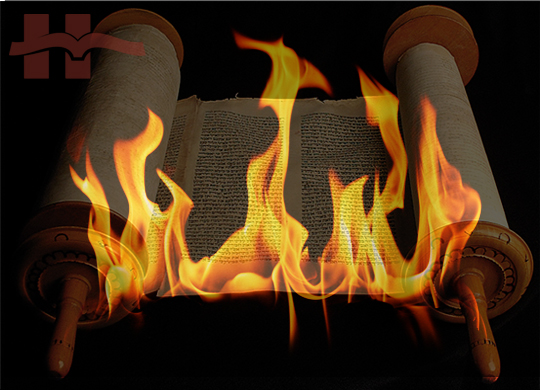Preaching is Spiritual

One of the key elements in my definition of preaching comes at the end: “all in the power of the Holy Spirit.” “All,” i.e., the communication in a worship gathering of Christians, the discernment of the biblical idea by theological exegesis of Scripture, and the application of that idea to the specific body of believers to conform them to the image of Christ for the glory of God. All. Every part of preaching is to be Spirit-directed and Spirit-controlled. Preaching is spiritual!
“You gave Your good Spirit to instruct them, Your manna You did not withhold from their mouth, And You gave them water for their thirst. … You bore with them for many years, And admonished them by Your Spirit through Your prophets, Yet they would not give ear. Therefore You gave them into the hand of the peoples of the lands.”
Nehemiah 9:20, 30
There are only two instances of “Spirit” in Nehemiah, in the texts shown above. Nehemiah 9 falls within the section on covenant renewal (7:73b–10:39) and contains the recitation and prayer of the Levites, as they “cried with a loud voice to Yahweh their God” (9:4). The Septuagint, however, opens 9:6 with “And Ezra said ….” In any case, this follows (and extends) the reading and explanation of the book of the law (8:8), in the context of their confession to and worship of Yahweh (9:3).
The acknowledgement of the work of the Holy Spirit is telling. In particular, Nehemiah 9:20 and 9:30 point to the instructional role of God’s Spirit, linked to the admonition by prophets who, of course, spoke by that selfsame Spirit (2 Peter 1:21). In fact, some ancients considered Ezra, himself, a prophet. Clement of Alexandria (150–215) wrote: “Ezra the Levite, the priest, in the time of Artaxerxes king of the Persians, having become inspired in the exercise of prophecy restored again the whole of the ancient Scriptures” (Stromata 1.22). And Irenaeus (2nd century) asserted that God “inspired Ezra the priest, of the tribe of Levi, to recast all the words of the former prophets, and to re-establish with the people the Mosaic legislation” (Against Heresies 3.21.2). Nehemiah, too, may be a figure of the Holy Spirit in that his name means “Yahweh comforts”—a role that the New Testament allots to the Holy Spirit (John 14:16; 16:13–15), himself called the Comforter.
The precise operation of the Holy Spirit in preaching (or in any ministry for that matter) is hard to nail down. He is no doubt active every step of the way, from preparation to delivery, in everything that happens in the worship context of the preaching, as well as in the broader scope of the shepherding ministry of the pastor.
Here’s a checklist of questions I use to assess the role of the Spirit in my preaching (the italicized, alliterated words help my fading brain remember those items): Is the work of the Spirit evident in my life (purity)? Is my purpose in preaching to glorify God (purpose)? Have I bathed the entire operation in prayer (prayer)? Am I conscious of the presence of the Spirit in the preaching event (presence)? Am I relying wholly on the power of the Spirit (power)? Do I acknowledge the results of my preaching as Spirit-given (product)? And if Spirit-given, am I giving him praise for those results (praise)?












 Abe Kuruvilla is the Carl E. Bates Professor of Christian Preaching at The Southern Baptist Theological Seminary (Louisville, KY), and a dermatologist in private practice. His passion is to explore, explain, and exemplify preaching.
Abe Kuruvilla is the Carl E. Bates Professor of Christian Preaching at The Southern Baptist Theological Seminary (Louisville, KY), and a dermatologist in private practice. His passion is to explore, explain, and exemplify preaching.